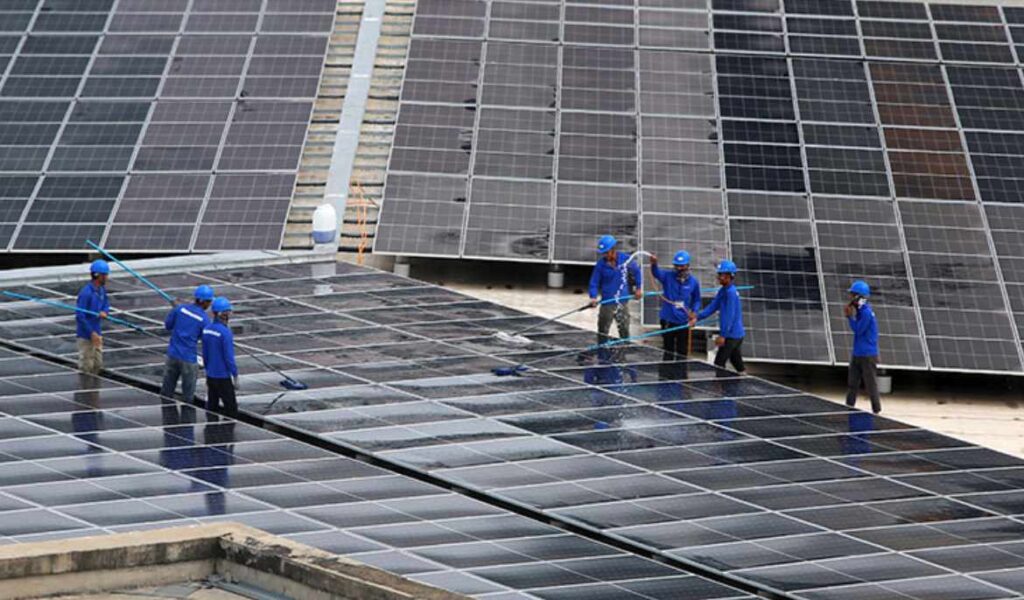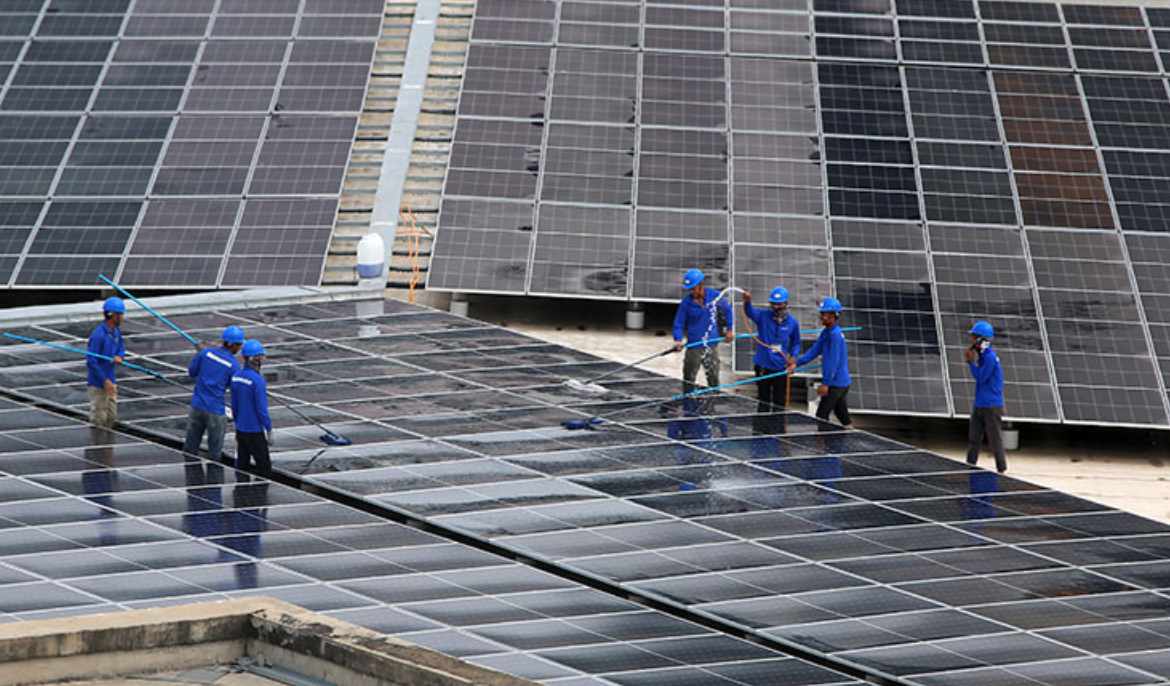Cambodia Monday took a major step forward in its climate and energy ambitions with the launch of a new project aimed at accelerating energy efficiency in the building sector.
The Ministry of Mines and Energy (MME), together with the United Nations Capital Development Fund (UNCDF) and UNDP Cambodia, officially unveiled the ‘Accelerating Energy Efficiency in Cambodia’s Building Sector’ initiative, funded by the United Nations Joint SDG Fund.
The project is designed to advance energy efficiency by addressing behavioural, regulatory, and market challenges, while at the same time facilitating access to green financing opportunities for the private sector. Officials say it will play a critical role in supporting Cambodia’s broader strategy for sustainable economic development and climate resilience.
Speaking at the launch ceremony, Chhe Lidin, Undersecretary of State at the Ministry of Mines and Energy, emphasized that energy efficiency lies at the core of the government’s vision for a cleaner, more secure, and economically viable energy future.
He said, “Energy efficiency represents the most cost-effective tool for achieving increased energy security, reducing operational costs, and creating a cleaner environment in line with the National Energy Efficiency Policy (NEEP) 2022–2040.”
Echoing this commitment, UNDP Resident Representative Alissar Chaker stressed the urgent need for action as Cambodia remains highly vulnerable to the negative impacts of climate change.
She pointed to rising temperatures, erratic rainfall patterns, prolonged droughts, and increasing sea levels as serious challenges that threaten the country’s economic and social development.
According to a study by the National Council for Sustainable Development and the Ministry of Economy and Finance, climate change impacts could reduce Cambodia’s GDP by 2.5 percent by 2030 and nearly 10 percent by 2050 if effective mitigation measures are not adopted.
Chaker underscored that the government has set ambitious climate targets, including a pledge to cut greenhouse gas emissions by 41.7 percent by 2030 under its updated Nationally Determined Contributions (NDCs), and to achieve carbon neutrality by 2050 through its Long-Term Strategy for Carbon Neutrality. Given that the energy sector is the second-largest source of emissions in Cambodia, decarbonization efforts in this field are essential.
“Energy efficiency measures offer a highly effective pathway to both reducing energy consumption and cutting carbon emissions,” she said.
The building sector, accounting for around 52 percent of the country’s final energy use, presents a significant opportunity for impact. The new project aims to support improvements in the sector through a combination of training programs, enhanced understanding and deployment of energy service companies (ESCOs), and the development of standard operating procedures that will encourage greater private sector participation.
Chaker highlighted the broader context in which this project fits, pointing out that UNDP has been working closely with the Cambodian government for years to advance energy transition initiatives. “These include support for regulatory reforms such as the establishment of a Renewable Energy Certificate system, the development of principles for rooftop solar power deployment, and technical regulations to promote building energy efficiency.”
UNDP has also helped build institutional capacities through initiatives like the Certified Energy Manager and Auditor Training Programme, as well as developing a Roadmap for Low-Carbon and Resilient Buildings toward 2050.
The new joint program aims to build on this foundation by scaling up practical solutions that can deliver measurable impacts. A key focus will be on preparing a bankable investment project that can mobilize greater financial resources and have an even broader effect in the future.
As Cambodia prepares for the next phase of its climate commitments under the Paris Agreement, officials and development partners alike see this project as an important catalyst for achieving greater ambition and faster progress.
By strengthening technical expertise, regulatory frameworks, and market-based solutions, the project is expected to significantly contribute to Cambodia’s sustainable development goals while enhancing the country’s resilience against climate-related threats.
The launch event marked a moment of optimism and commitment, as stakeholders reaffirmed their shared vision of a low-carbon, energy-efficient future for Cambodia. With rising international expectations and growing domestic needs, the acceleration of energy efficiency initiatives is set to play a vital role in shaping Cambodia’s path to prosperity and environmental sustainability.



